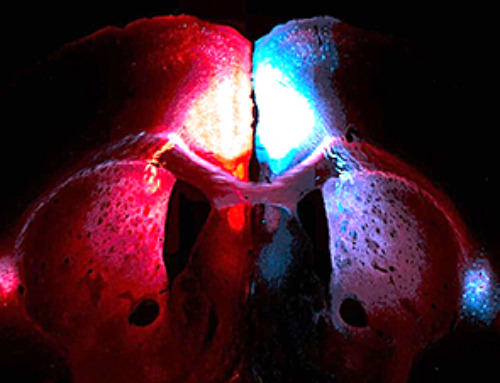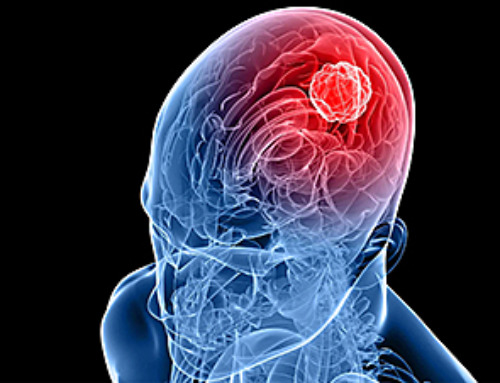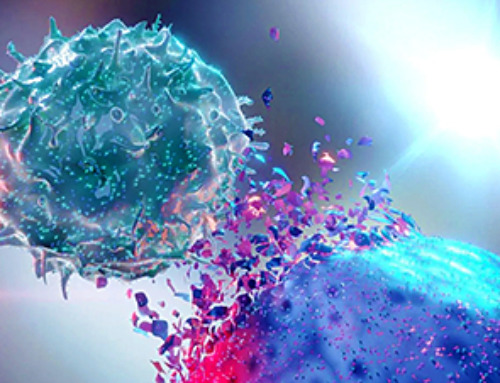Pancreatic cancer, a particularly lethal form of cancer and the fourth leading cause of cancer-related deaths in the western world, often remains undiagnosed until its advanced stages due to a lack of early symptoms.
Current treatments, like chemotherapies, have significant limitations, notably damaging healthy cells alongside tumor cells. However, recent advancements spearheaded by a collaboration between the Max Planck Institute for Multidisciplinary Sciences, University Medical Center Göttingen, and Karlsruhe Institute of Technology, focusing on the use of innovative nanoparticles.
Nanoparticle-Based Delivery of Chemotherapy
This novel approach utilizes nanoparticles for the precise delivery of the chemotherapy drug Gemcitabine directly to pancreatic tumor cells. Highlighting the potential of this method, Myrto Ischyropoulou, the lead author of the study, states: “Targeting the drug in high concentrations into the tumor cells with the help of the nanoparticles increases the efficacy and spares healthy cells. This can reduce the severe side effects that occur with Gemcitabine.” This targeted delivery system signifies a major advancement from the broader impact of conventional chemotherapy, which often adversely affects the patient’s overall health.
In preclinical trials, the nanoparticles have shown promise in transporting high quantities of Gemcitabine directly into the tumor cells of pancreatic cancer. The effectiveness of this method was confirmed using imaging techniques in mouse models, demonstrating that the nanoparticles specifically accumulate within the tumors. This targeted approach not only boosts the drug’s effectiveness against the tumor but also minimizes its harmful effects on healthy tissues.
Another advantage of this method is its potential to overcome the resistance mechanisms that tumors often develop against chemotherapy drugs. Claus Feldmann from KIT points out that free Gemcitabine is often ineffective due to the tumor’s resistance to drug uptake, but the nanoparticles introduce a different uptake mechanism in tumor cells, promising a more effective therapeutic approach.
The success of this research, illustrating the power of interdisciplinary collaboration, paves the way for further advances in the treatment of pancreatic cancer. The team is now working on optimizing this therapy for clinical application and transitioning the nanoparticles from the experimental phase to clinical use, facilitated by a spin-off company. This progression towards practical application not only signifies a leap in medical innovation but also mirrors the broader trends in the healthcare sector, particularly in oncology.
In the context of these developments, the pancreatic cancer treatment market is experiencing significant growth. According to Data Bridge Market Research, the market, which was valued at USD 2,236.17 million in 2021, is projected to expand to USD 6,245.81 million by 2029. This growth represents a Compound Annual Growth Rate (CAGR) of 13.70% during the forecast period from 2022 to 2029. Such growth is indicative of the increasing demand for more effective and targeted cancer treatments.
Conclusion
The development of nanoparticle-based chemotherapy for pancreatic cancer marks a pivotal shift towards more targeted and efficient cancer treatments. This breakthrough, poised to significantly reduce side effects and improve drug efficacy, aligns with the rapid growth and evolving dynamics of the cancer treatment market. As this technology progresses towards clinical application, it holds the promise of transforming the landscape of cancer therapy, offering new hope to patients battling one of the most challenging forms of cancer.
News
Rejuvenating neurons restores learning and memory in mice
EPFL scientists report that briefly switching on three “reprogramming” genes in a small set of memory-trace neurons restored memory in aged mice and in mouse models of Alzheimer’s disease to level of healthy young [...]
New book from Nanoappsmedical Inc. – Global Health Care Equivalency
A new book by Frank Boehm, NanoappsMedical Inc. Founder. This groundbreaking volume explores the vision of a Global Health Care Equivalency (GHCE) system powered by artificial intelligence and quantum computing technologies, operating on secure [...]
New Molecule Blocks Deadliest Brain Cancer at Its Genetic Root
Researchers have identified a molecule that disrupts a critical gene in glioblastoma. Scientists at the UVA Comprehensive Cancer Center say they have found a small molecule that can shut down a gene tied to glioblastoma, a [...]
Scientists Finally Solve a 30-Year-Old Cancer Mystery Hidden in Rye Pollen
Nearly 30 years after rye pollen molecules were shown to slow tumor growth in animals, scientists have finally determined their exact three-dimensional structures. Nearly 30 years ago, researchers noticed something surprising in rye pollen: [...]
NanoMedical Brain/Cloud Interface – Explorations and Implications. A new book from Frank Boehm
New book from Frank Boehm, NanoappsMedical Inc Founder: This book explores the future hypothetical possibility that the cerebral cortex of the human brain might be seamlessly, safely, and securely connected with the Cloud via [...]
How lipid nanoparticles carrying vaccines release their cargo
A study from FAU has shown that lipid nanoparticles restructure their membrane significantly after being absorbed into a cell and ending up in an acidic environment. Vaccines and other medicines are often packed in [...]
New book from NanoappsMedical Inc – Molecular Manufacturing: The Future of Nanomedicine
This book explores the revolutionary potential of atomically precise manufacturing technologies to transform global healthcare, as well as practically every other sector across society. This forward-thinking volume examines how envisaged Factory@Home systems might enable the cost-effective [...]
A Virus Designed in the Lab Could Help Defeat Antibiotic Resistance
Scientists can now design bacteria-killing viruses from DNA, opening a faster path to fighting superbugs. Bacteriophages have been used as treatments for bacterial infections for more than a century. Interest in these viruses is rising [...]
Sleep Deprivation Triggers a Strange Brain Cleanup
When you don’t sleep enough, your brain may clean itself at the exact moment you need it to think. Most people recognize the sensation. After a night of inadequate sleep, staying focused becomes harder [...]
Lab-grown corticospinal neurons offer new models for ALS and spinal injuries
Researchers have developed a way to grow a highly specialized subset of brain nerve cells that are involved in motor neuron disease and damaged in spinal injuries. Their study, published today in eLife as the final [...]
Urgent warning over deadly ‘brain swelling’ virus amid fears it could spread globally
Airports across Asia have been put on high alert after India confirmed two cases of the deadly Nipah virus in the state of West Bengal over the past month. Thailand, Nepal and Vietnam are among the [...]
This Vaccine Stops Bird Flu Before It Reaches the Lungs
A new nasal spray vaccine could stop bird flu at the door — blocking infection, reducing spread, and helping head off the next pandemic. Since first appearing in the United States in 2014, H5N1 [...]
These two viruses may become the next public health threats, scientists say
Two emerging pathogens with animal origins—influenza D virus and canine coronavirus—have so far been quietly flying under the radar, but researchers warn conditions are ripe for the viruses to spread more widely among humans. [...]
COVID-19 viral fragments shown to target and kill specific immune cells
COVID-19 viral fragments shown to target and kill specific immune cells in UCLA-led study Clues about extreme cases and omicron’s effects come from a cross-disciplinary international research team New research shows that after the [...]
Smaller Than a Grain of Salt: Engineers Create the World’s Tiniest Wireless Brain Implant
A salt-grain-sized neural implant can record and transmit brain activity wirelessly for extended periods. Researchers at Cornell University, working with collaborators, have created an extremely small neural implant that can sit on a grain of [...]
Scientists Develop a New Way To See Inside the Human Body Using 3D Color Imaging
A newly developed imaging method blends ultrasound and photoacoustics to capture both tissue structure and blood-vessel function in 3D. By blending two powerful imaging methods, researchers from Caltech and USC have developed a new way to [...]





















